Retinoid vs Retinol: Which One To Choose And Why
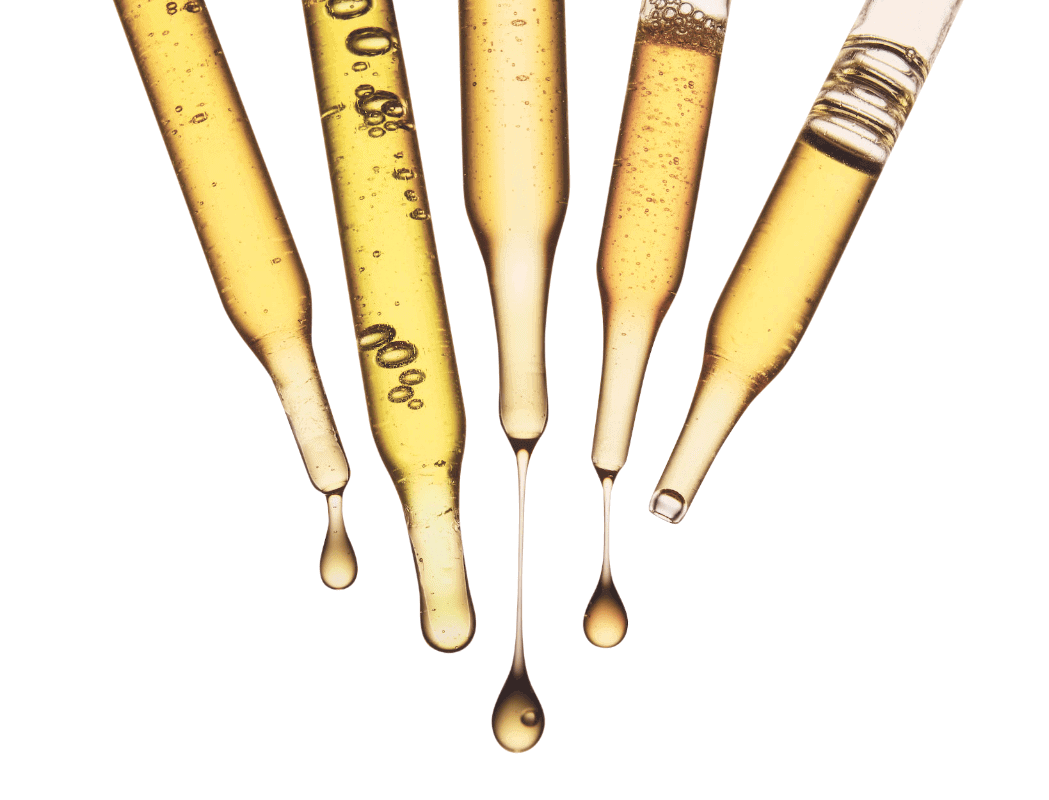
Within the last few years, using retinol and retinoids became a need of many women across the globe. Countless influencers and celebrities praised it for reducing signs of aging and clearing dark spots. This resulted in a retinoid vs retinol debate.
Lots of different retinol products are being released, all claiming to help your face look younger, brighter, and smoother. However, there is an overwhelming number of questions about retinoid vs retinol, so we wanted to explain the difference between them. In this article, we will also be explaining the effects of retinol and comparing natural and chemical formulas, to help you find the right retinol products for your skin. We’ll cover the following:
- What Are Retinoids?
- Retinoid vs Retinol
- What Is Retinol?
- Synthetic vs Plant-Based Retinol
- Retinoid vs Retinol: Cautions for Retinol
- Side Effects Of Chemical Retinol
- Best Natural Retinol Product
- What Ingredients To Look For in Retinol
- How to Apply Retinols
- Retinoid vs Retinol – Final Thoughts
What Are Retinoids?
According to the International Union of Biochemistry and Molecular Biology: “retinoids are a class of compounds derived from vitamin A or showing similarities to vitamin A”. Vitamin A is a powerful, moisturizing vitamin that helps protect against fight signs of ageing and sun damage.
Retinoids can be used by all ages, and they are famous for treating the following facial skin concerns:
- Wrinkles and fine lines
- Hyperpigmentation and dark spots
- Acne and Scarring
- Sun damage
Retinoids treat these problems by increasing the rate of skin cell division and regeneration. They also stimulate the skin’s production of collagen and elastin, both of which massively help to prevent wrinkles and make skin appear more youthful. If you suffer from acne, the retinoid also assists this condition by unclogging pores and reducing inflammation.
RETINOID VS RETINOL
Back to Retinoid vs retinol distinction. Retinoid is an umbrella term for a spectrum of retinol-based products. Retinol is one of them. Tretinoin also falls within the umbrella of retinoids despite being a heavy medicinal, synthetic Vitamin A. Both retinol and retinoids are anti-aging products that can be easily confused due to their similar names. It is also good to be aware of the tretinoin vs retinol difference.
Retinol is a specific type of retinoid, and it is usually a lower dosage treatment that can be either prescribed or store-bought (over-the-counter). On the other hand, retinoid is a product that always requires a prescription from a dermatologist.
Both are effective treatments, although the prescription retinoid will usually work faster as it is a more intensive formula. However, it could come with more irritation compared to the gentler retinol. It is stronger due to a higher percentage of active ingredient, but it is also harsher to the skin and comes with often unpleasant side-effects such as skin purging and redness.
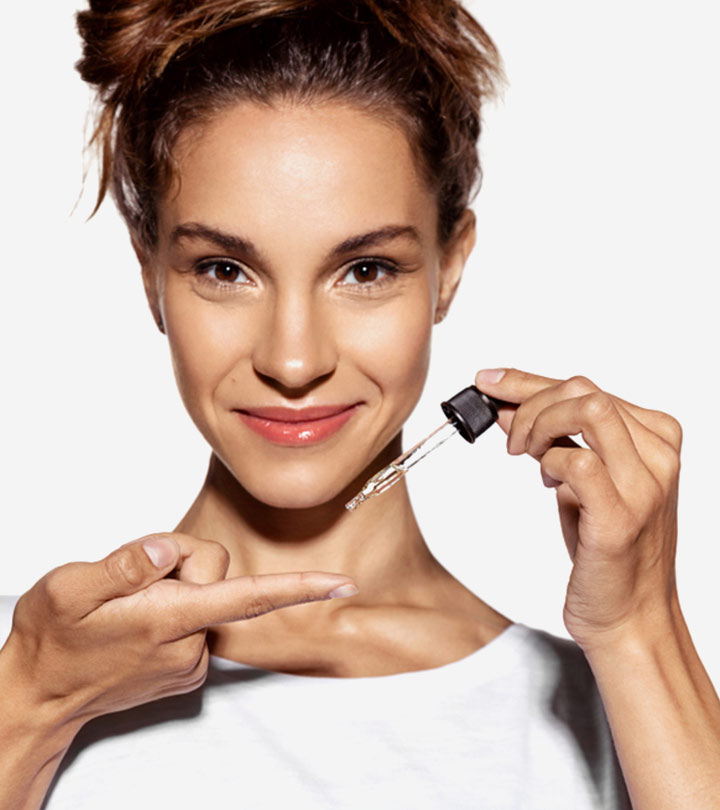
What Is Retinol?
Retinol falls within a sub-section of retinoids, however the main difference is that retinol can be either prescribed by a doctor or purchased without a prescription. Moreover, retinol tends to come in lower dosages than retinoids – starting from 0.25% to up to 1%. It is definitely milder and gentler than retinoids. It has the same way of working as retinoids though – stimulating collagen and speeding skin cell regeneration.
So, the end result of retinol is the same as the end result of retinoids – fighting fine lines and wrinkles, skin blemishes, acne, and dark spots. However, retinol is slower to produce results and is more of a long-run effect product. Retinoids are faster working. Therefore, if you have an acne breakout that you urgently need to soothe, a stronger and faster retinoid could be your choice.
However, beware of potential side effects of harsh chemicals that most retinoids contain. Sometimes a quicker solution is not the best solution in the long run due to many skin irritations that accompany use of strong chemical retinoids. This adds a bit of complexity to a retinoid vs retinol distinction.
Synthetic vs Plant-Based Retinol
Retinol can be either prescription-based or over the counter. Both types of retinols can be further distinguished into synthetic, lab-produced retinol and natural, plant-based one. Chemical retinol is the more fast-acting of the two options and can be bought over the counter or prescribed by a dermatologist. Using prescription retinol will usually produce faster results, as a dermatologist can do a skin evaluation and direct you to the most effective retinol for your specific skin problems (e.g., fine lines, hyperpigmentation, or acne).
Unfortunately, the intensity of lab-made retinol can often cause irritation, itching, and redness. Sometimes it manifests as stinging, burning sensation, and increased sensitivity of the skin.
The skin especially becomes sensitive to sun exposure during this time. Depending on the sensitivity of your skin this irritation could be difficult to manage. Other times the side effects reduce over time.
So our initial distinction between retinoid vs retinol has become an important question of whether you should be using synthetic or natural, vegan retinol.
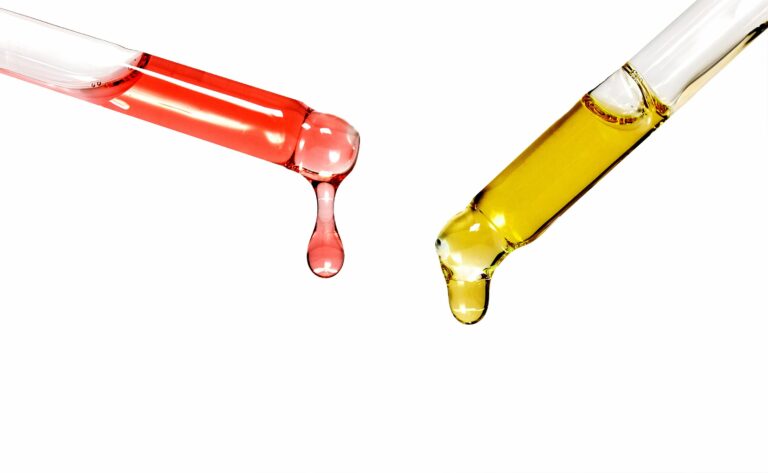
Retinoid vs Retinol: Cautions for Retinol
As we mentioned above, the retinoid vs retinol question has brought up a very important role that synthetic, lab-produced retinols play. We want to make sure you’re as safe as possible, so here are three things you need to know before you choose the right retinol to apply to your skin:
- Retinoids should not be used at the same time as vitamin c. This is because your skin needs a low pH level to absorb vitamin c, while retinoids need a higher pH level. Since both Retinol and Vitamin C are skin routine essentials, it is recommended to use Vitamin C serum in the morning and Retinol Serum during the night.
- Also, if you are pregnant or breastfeeding, you should avoid applying synthetic retinol and other harsh chemical retinoids to your skin. Actually, you should avoid any synthetic, lab-produced skincare and body care. Opt in for a gentle, plant-based retinol such as Plant Mother’s Organic Retinol Serum.
- Chemical retinol causes sensitivity to the sun. So, avoid direct sunlight and always wear SPF, ideally use biodegradable sunscreen. Also, use natural, vegan retinol that doesn’t make your skin more vulnerable to sunburn. Another advantage of began retinol is the fact that it is a cruelty free retinol.
Side Effects Of Chemical Retinol
- Finally, synthetic retinol causes hormone disruption – using synthetic, lab-produced retinol can lead to the chemicals changing your hormonal level and causing imbalance. Long term, hormonal imbalance can affect your health in a negative way. You can suffer from hormonal acne caused by a hormonal imbalance. Long term, you can become more susceptive to the development of infertility, pregnancy complications, osteoporosis, and even cancer.
- Synthetic ingredients in lab-produced retinoids as well as synthetic retinols are animal-derived. For people who avoid using any animal-based ingredients in their skin care, clean, vegan, cruelty-free retinol is the best choice. It’s a natural alternative, meaning not only is it not as irritating, it’s a great option for those who shop vegan and clean. Also a great choice for people in consideration of skin conditions like eczema, psoriasis, or atopic dermatitis.
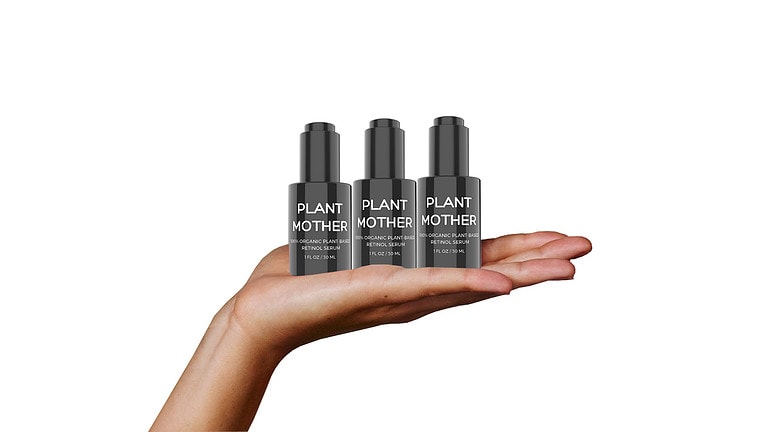
Best Natural Retinol PRODUCT
So, the answer to our initial question retinoid vs retinol is retinol. But not just any kind of retinol. We recommend plant-based natural retinol, ideally one packed with Vitamin A, carotenoids, essential fatty acids, and vitamins. If you have dry and sensitive skin or if you don’t like putting harsh chemicals on your face and dealing with all the unpleasant side effects, then you should use vegan retinol.
Vegan retinol will achieve the same rejuvenating results as synthetic retinols, but you’ll get the benefits of healthy, nutritious, and natural ingredients. Natural retinol is not just a vegan alternative; the ingredients will provide different (better) results to the chemical retinols.
When searching for natural retinol, you should check for the highest-quality ingredients. Plant Mother’s Vegan Retinol Serum is made for women (and men) who refuse to risk health for beauty. This Retinol Serum is a powerful remedy for sensitive skin, with strong anti-aging benefits. It’s 100% vegan, organic vitamin A that does the work without any redness, skin irritation or what’s often called “retinol uglies.”
Plant Mother’s retinol is formulated without harsh irritating chemicals and is recommended for even the most sensitive skin. With over 20 fresh organic botanical ingredients and more than 200 nutrients, it is the most nutritious anti-aging retinol on the market. It’s a true skin food.
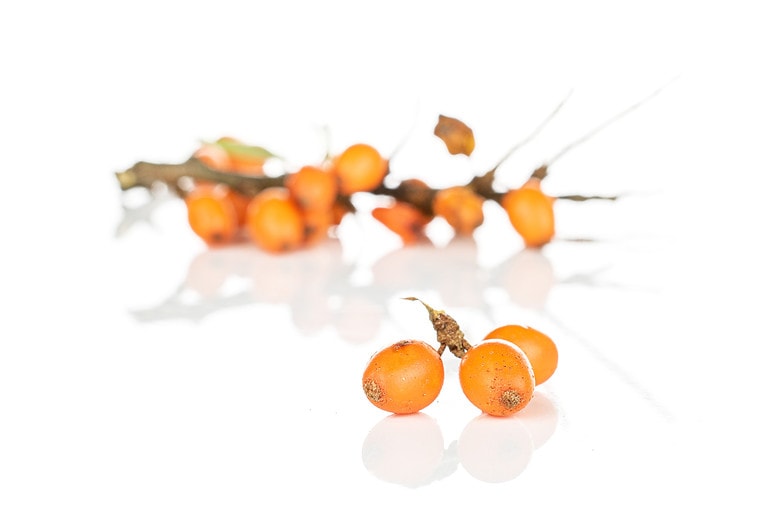
What Ingredients To Look For in Retinol
When it comes to natural alternative to synthetic Retinol, it is good to know the difference between bakuchiol vs retinol. Some examples of wonderful plant-based retinol alternatives include:
- Bakuchiol – a powerful botanical retinol alternative, often called retinol’s gentle sister. Studies have shown that bakuchiol helps prevent fine lines and wrinkles, and helps with pigmentation, elasticity, and firmness. All that without irritation or redness.
- Sea buckthorn seed and pulp – These two are, rightfully so, called the king and queen of skin rejuvenation. They are a great source of natural retinol (provitamin A) which improves the skin’s youthfulness and elasticity. It is also a potent antioxidant that helps to clear breakouts and protects skin from environmental damage. Again, it works without harshness or irritation to the skin.
- Rosehip oil – Chock-full of goodness, it helps to protect and hydrate skin, fight free radical damage, and reduce wrinkles. The vitamins and antioxidants rejuvenate the skin to restore elasticity, help to correct dark spots, and reduce the appearance of scars. This oil contains essential fatty acids and has anti-aging properties. It also helps to fade acne scars.
- Carrot Seed oil – this oil is made up of carotene and provitamin A, which firm the skin and protect it from sun damage. Carrot oil consists of the naturally occurring vitamins and beta carotene that help protect the skin against sun damage and also smoothens the signs of aging.
How to Apply Retinols
Due to the popularity of its use, retinol is now made in a variety of forms such as moisturizers, creams, and face oils. A thin layer of retinol should be applied after using a gentle face wash and before your moisturizer, or mixed in your moisturizer.
Because chemical retinol is a strong treatment, your skin needs time to adjust to using it. You should only apply retinol at night, as your skin will be sensitive to the sun if it’s applied in the morning. It is not advised to apply retinol twice a day, as this can result in damage to your skin.
For a beginner, the percentage of retinol should not be any higher than 0.025% in your product. After several weeks of use (and no negative reaction), you can switch to a higher percentage, but you should not have to increase the dosage to see positive results.
Even better – avoid any skin irritations, redness, or sun sensitivity by using 100% plant based retinol serum. It will give you the same long-term results without harsh chemical irritation and potential endocrine disruption.
Retinoid vs Retinol - Final Thoughts
Whether you choose a chemical or natural retinol treatment, you should know that every retinol has different strengths and different reparative qualities. What works for someone else, might not have the same effect on you, because we all have unique skin.
Every face reacts individually to different types of retinols, so it’s hard to say whether chemical or natural retinol is the best to use. If your skin prefers natural ingredients and is sensitive to chemicals, then plant-based retinol would be for you.
However, if you don’t mind having initially irritated skin in return for a more intense treatment, then chemical retinol or a prescription retinoid would be your choice. Beware though that chemical retinols can contain harmful ingredients that can cause endocrine disruption. This can result in hormonal breakouts, tumors, and even fertility issues.
Once you find the right retinol or retinoid product for you, it will reward you with a younger, brighter, happier looking face!
References
- https://theplantmother.com/product/organic-plant-based-retinol-serum/
- https://theplantmother.com/vegan-retinol/
- https://theplantmother.com/tretinoin-vs-retinol/
- https://www.harpersbazaar.com/beauty/skin-care/a36542105/natural-retinol-alternatives-explained/
- https://www.ncbi.nlm.nih.gov/pmc/articles/PMC6791161/
